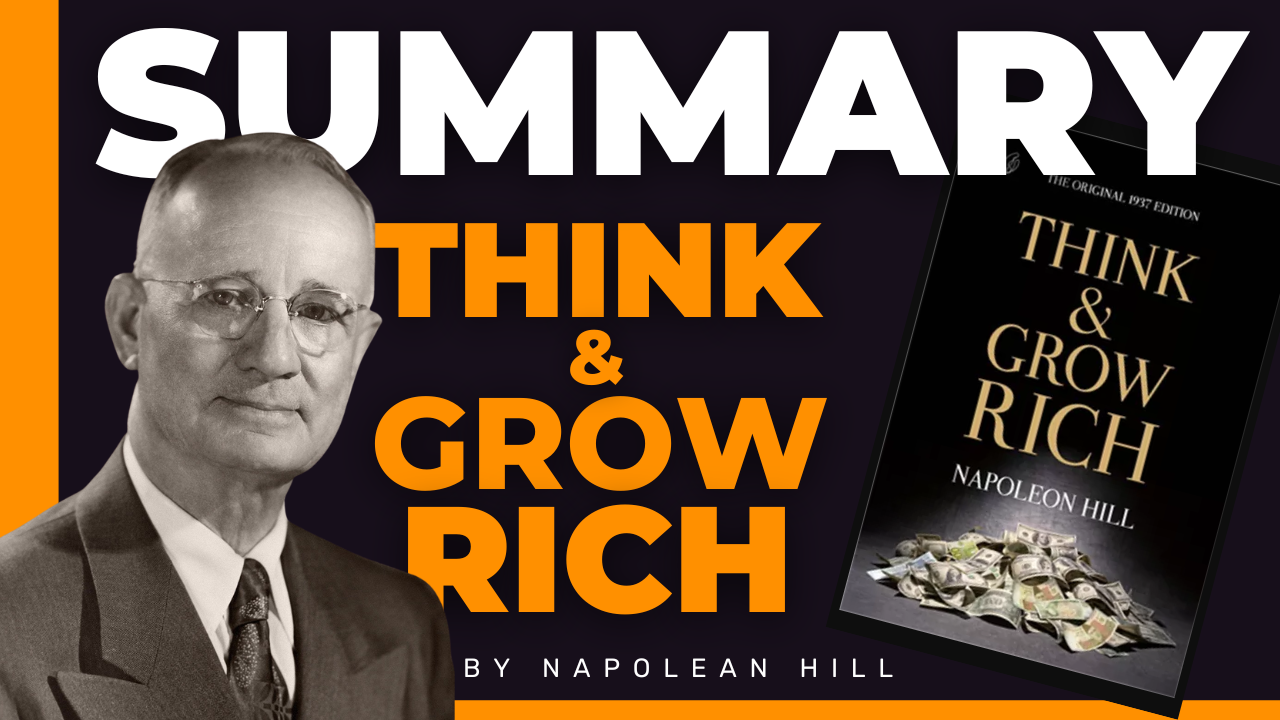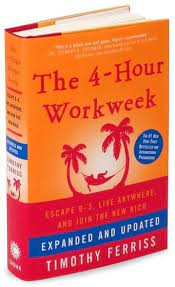“Think and Grow Rich” is a personal development and self-help book written by Napoleon Hill and published in 1937. The book presents Hill’s 13 principles for success, which he developed after studying the lives of successful people such as Andrew Carnegie, Henry Ford, and Thomas Edison.
Page Contents
Who should read this book?
“Think and Grow Rich” is suitable for anyone who is looking to improve their financial success, whether they are just starting out in their career or are established professionals. It is also a good read for those who want to learn more about the mindset and habits of successful people.
Top 10 most important lessons from the book:
- The power of your thoughts: Hill emphasizes the importance of the way you think, arguing that your thoughts have a powerful influence on your actions and ultimately your success. He advises readers to focus their thoughts on their goals and to eliminate negative thoughts.
- The importance of setting clear goals: Hill advises readers to set specific, measurable, achievable, relevant, and time-bound (SMART) goals as a way to focus their efforts and increase their chances of success.
- The role of persistence: Hill argues that persistence is a key ingredient to success and advises readers to never give up on their goals, no matter how difficult they may seem.
- The value of a positive mental attitude: Hill advises readers to cultivate a positive mental attitude and to surround themselves with positive, supportive people.
- The importance of taking action: Hill advises readers to not just think about their goals, but to take consistent, focused action towards achieving them.
- The power of visualization: Hill advises readers to use visualization as a way to help them achieve their goals by picturing themselves already in possession of what they desire.
- The role of personal initiative: Hill emphasizes the importance of taking personal responsibility for your own success and advises readers to develop their own ideas and take action on them.
- The value of planning: Hill advises readers to develop a plan of action and to work consistently towards achieving their goals.
- The importance of self-discipline: Hill advises readers to cultivate self-discipline in order to stay focused and avoid distractions.
- The role of education: Hill advises readers to continuously seek out new knowledge and learning opportunities as a way to improve their skills and increase their chances of success.
Examples of how to implement these lessons in your life:
- To cultivate the power of your thoughts, try practicing positive affirmations or setting aside time each day to focus on your goals.
- To set clear goals, try using the SMART goal-setting method and writing down your goals in a planner or journal.
- To cultivate persistence, try setting aside time each day to work towards your goals and reminding yourself of the benefits of achieving them.
- To develop a positive mental attitude, try surrounding yourself with positive people and engaging in activities that make you happy.
- To take consistent action towards your goals, try breaking them down into smaller, more manageable tasks and tackling them one at a time.
- To use visualization as a tool, try setting aside time each day to close your eyes and visualize yourself achieving your goals.
- To take personal initiative, try identifying problems or challenges in your personal or professional life and coming up with ideas for how to solve them.
- To develop a plan of action, try breaking down your goals into smaller tasks and setting deadlines for completing them.
- To cultivate self-discipline, try setting limits on your time spent on social media or other distractions and focusing on your priorities.
In conclusion, “Think and Grow Rich” is a personal development and self-help book that presents 13 principles for success. The book emphasizes the importance of the way you think, setting clear goals, persistence, a positive mental attitude, taking action, visualization, personal initiative, planning, self-discipline, and education. These principles can be applied in your personal and professional life to help you achieve your goals and improve your financial success. Hill’s advice is based on his own research and the experiences of successful people, and the book provides practical tips and strategies for implementing these principles in your own life. Overall, “Think and Grow Rich” is a valuable resource for anyone looking to improve their financial success and achieve their goals.
10 Best Quotes From “Think and Grow Rich”
Here are 10 of the best quotes from Napoleon Hill’s “Think and Grow Rich”
- “Whatever the mind of man can conceive and believe, it can achieve.”
- “The starting point of all achievement is desire.”
- “Think twice before you speak, because your words and influence will plant the seed of either success or failure in the mind of another.”
- “No individual has the right to come into the world and go out of it without leaving behind him distinct and legitimate reasons for having passed through it.”
- “The only limit to our realization of tomorrow will be our doubts of today.”
- “The only thing that stands between a man and what he wants from life is often merely the will to try it and the faith to believe that it is possible.”
- “Desire is the starting point of all achievement, not a hope, not a wish, but a keen pulsating desire which transcends everything.”
- “Successful people are simply those with successful habits.”
- “The only real limitation is the one which you set up in your own mind.”
- “Opportunity often comes disguised in the form of misfortune, or temporary defeat.”





